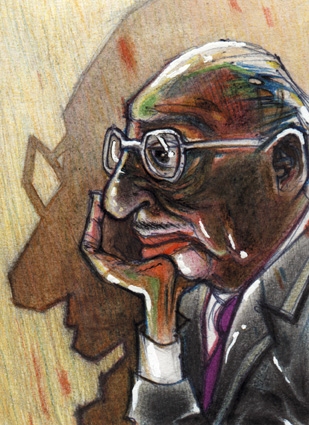|
Xtend
 Listen
Listen
 Period
Period
 Country
Country
 Notes
Notes
 Quotation
Quotation
 Projects
Projects
 Dictionary
Dictionary
 Finders
Finders
|
Born: 17 June
1882, Oranienbaum, Russia
Died: 6 April 1971, New York, USA
Stravinsky, Igor
 The
composer who was forced to study law, and indulged in music after he graduated.
He learned from Rimsky-Korsakov The
composer who was forced to study law, and indulged in music after he graduated.
He learned from Rimsky-Korsakov ,
and his first big work was an orchestration ,
and his first big work was an orchestration for Chopin's
for Chopin's ballet
ballet music "The Sylaphides". His success
brought about an order from the impressario Dyagilev,
for three additional ballet pieces, some of the most important works of
the 20th century
music "The Sylaphides". His success
brought about an order from the impressario Dyagilev,
for three additional ballet pieces, some of the most important works of
the 20th century :
"The Firebird" :
"The Firebird"  ("L'oiseau de feu"), "Petrushka",
and the piece that provoked an enormous scandal among listeners - "The
Rite of Spring"
("L'oiseau de feu"), "Petrushka",
and the piece that provoked an enormous scandal among listeners - "The
Rite of Spring"  ("Le sacre du printemps"), describing sacrificial
rituals in pagan Russia
("Le sacre du printemps"), describing sacrificial
rituals in pagan Russia .
Because of its unconventional dissonances .
Because of its unconventional dissonances and rhythms, critics viewed it as "Brutal", while the composer's
fans saw it as an attempt to search for new directions in music.
and rhythms, critics viewed it as "Brutal", while the composer's
fans saw it as an attempt to search for new directions in music.
In Switzerland, where he
settled during World War I, he wrote various works, in which he used Russian
folk music, as he had done in "The Soldier's
Tale". Here, he manifested a tendency
to narrow down the ensemble and for emotional restraint - signs
of Anti-Romanticism (Romantic composers tended
to use larger and larger orchestras and express intense emotions and moods
in their music) that characterized his work.
Later on, he composed the ballet "Pulcinella",
where he seemed to incorporate some of the work of Pergolesi ,
and the neo-classical opera ,
and the neo-classical opera "The Rake's Progress", referring
to the comic
"The Rake's Progress", referring
to the comic opera in the style of Mozart
opera in the style of Mozart . .
Versatile and inventive in changing styles, as he always
was, Stravinsky also composed interesting orchestral music incorporating
jazz music like in the Ebony Concerto for jazz
band. In later years, he settled in the United
States
music like in the Ebony Concerto for jazz
band. In later years, he settled in the United
States ,
where he taught music and composed in the twelve-tone
technique ,
where he taught music and composed in the twelve-tone
technique developed by Schönberg
developed by Schönberg . .



Stravinsky on the WWW
 Sites
Sites
|
 Audio
Audio
|
 Video
Video
|
 Images
Images
|
 MIDI
MIDI
|
|
Description
He Was

He played

He Lived in the
 Twentieth Century
Twentieth Century
In
 Russia
Russia
|